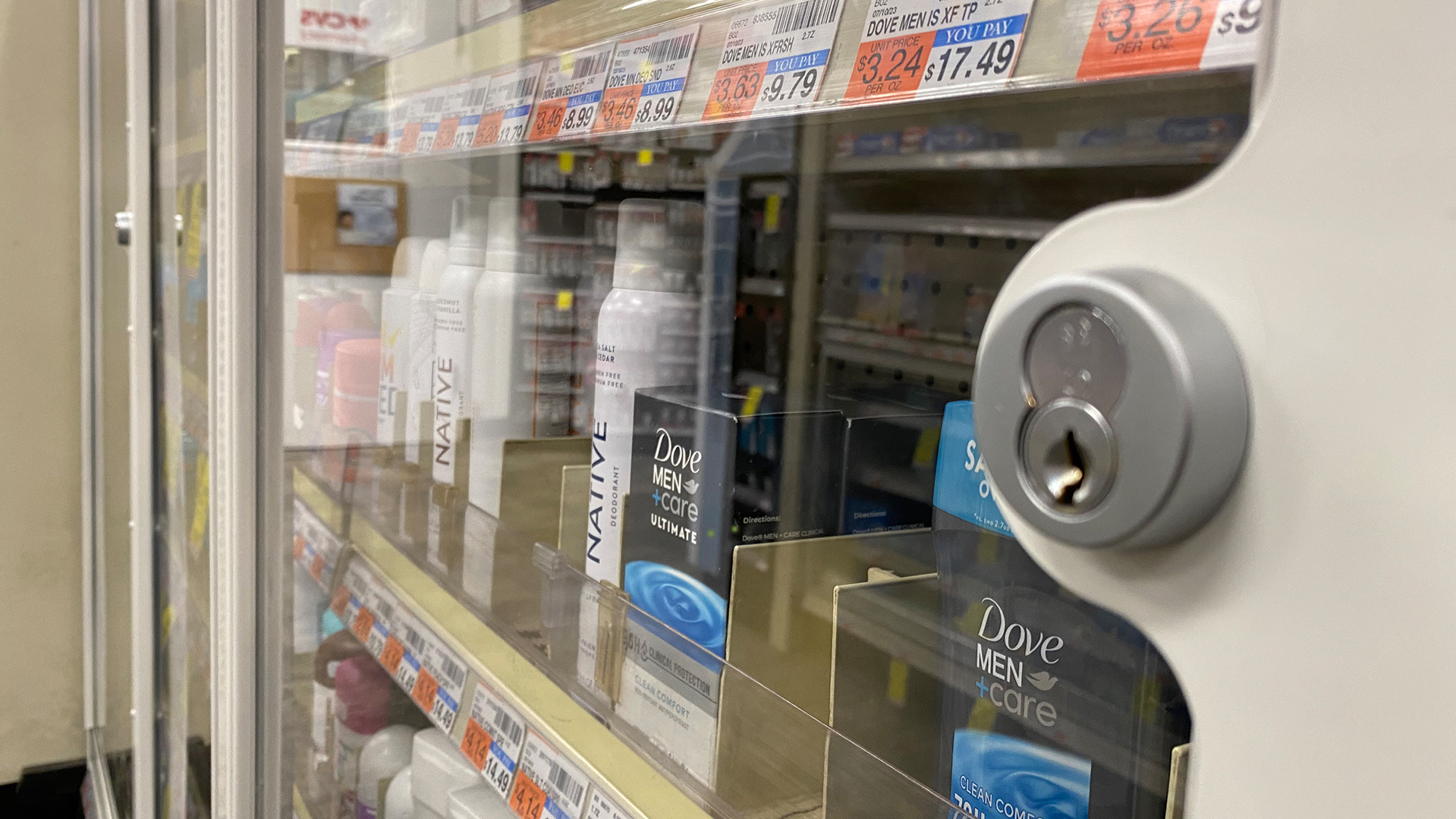
Simone Del Rosario: Retail theft. A crime that can hurt more than just the retailers.
Los Angeles Mayor Karen Bass: These are not victimless crimes, especially in the case where Angelinos are attacked through force or fear.
Simone Del Rosario: Los Angeles is afflicted more than any other city in the country. And like many other cities and states, this year they launched a task force to tackle organized retail crime.
Los Angeles Mayor Karen Bass: Those who commit these crimes will be caught, they will be held accountable, and we will work to address this issue. 1:41
Simone Del Rosario: The task force features 22 full-time investigators dedicated to retail crime.
In South Florida, following a 9-month multi-agency investigation, authorities charged 14 people in October for stealing more than $20 million in merchandise this year alone.
Florida Attorney General Ashley Moody: It is well-organized, it is profitable, it is criminal. This is the modern-day mafia and criminal organizations that we’re taking down.
Simone Del Rosario: But crime rings are like weeds. Pull one and another pops up. So any crackdown needs to get to the root of the problem: How to deter the crime in the first place.
Retailers have tried solutions like locking up items that are most often stolen…to their own detriment, according to top retail consultant Burt Flickinger.
Burt Flickinger: Locking up the merchandise can reduce sales by any anywhere from 12 to 20% or more.
Simone Del Rosario: Another option…checking receipts at the door.
KGW news report: Would that stop you? No, not at all. What, some lady’s gonna, Hey sir, sir! By that time I’ve already got the stuff in my car and while they’re trying to pull up the phone I’m already out of the parking lot.
Simone Del Rosario: Portland’s KGW reporter Kyle Iboshi interviewed convicted felon and retail crime ring leader Martin Castaway.
KGW news report: Does the presence of a security officer or loss prevention change your decision whether to go into a store or not? Not really. If I see a security dude with a gun, I know he can’t touch me.
Simone Del Rosario: He said only the presence of a police officer would give him second thoughts on shoplifting.
Dispatch: 9-1-1 what’s your emergency?
Simone Del Rosario: In one year, police in the greater Tampa, Florida, region logged nearly 17,000 calls to Walmarts. That’s two calls an hour, every hour, every day, according to a 2016 Tampa Bay Times analysis.
In Clearwater, Walmart called police after a man drank a 98-cent bottle of sweet tea in the store without paying. The police response and subsequent jail time cost taxpayers $1,230, the Times reports.
For years, Walmart’s been criticized for putting too much of its security burden on police.
Burt Flickinger: Instead of treating security as an expense the way most of the rest of retail does, in Walmart’s defense, treat security as an investment the way Target and Kroger and the independents do so well.
Simone Del Rosario: The Times reports local Walmarts generated four times as many calls as nearby Targets.
Target, which recently closed nine stores around the country over organized retail crime, says they’ve made significant investments in hiring more security team staff, third-party guard services and using theft-deterrent tools.
Walmart, meanwhile, announced plans to reopen an Atlanta-area store that was hit by arsonists last year. When the store opens in May, it’ll have a new feature: a police workstation inside.
Atlanta Mayor Andre Dickens: If you’re thinking about, you’re going to go into this Walmart and do some shoplifting or a robbery or whatever, you see this APD logo, and you’ll say, eh not today.
Simone Del Rosario: It’s not a solution for every store, and one possible solution isn’t at the store at all.
Rep. Jan Schakowsky: These scammers are having a heyday, particularly online.
Simone Del Rosario: Congresswoman Jan Schakowsky is behind the bipartisan INFORM Consumers Act, which took effect in June. The new law requires online marketplaces to verify and share identifying information on high-volume third-party sellers.
Rep. Jan Schakowsky: We want to make sure that we eliminate the opportunity for these, these defrauders and scammers to be able to sell online and hold these platforms accountable for checking out who the sellers are.
Burt Flickinger: It can make a modest difference on the rogue sellers. But no material changes in reducing crime today.
Simone Del Rosario: Flickinger says the real solutions come from the community. Like East Harlem’s Abyssinian Development Corporation, a nonprofit born out of the Abyssinian Baptist Church.
The group helped bring Pathmark to a relative food desert and used profits from the lease to reinvest in housing, economic development and social services.
Burt Flickinger: An area that everybody said was not saveable because the junkies had wrecked it for 40 or 50 years, and in a matter of a few years, it was first a requiem and then a whole East Harlem Renaissance.
Simone Del Rosario: The renaissance would last less than two decades. A building sale, a bankruptcy, and a spat between development partners, Pathmark shuttered in 2015, leaving residents with few affordable food options.
This is part 3 of a 3-part series. Go to SAN.com and search “organized retail crime” to catch up on parts 1 and 2.







